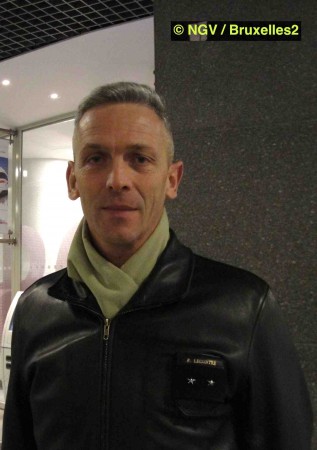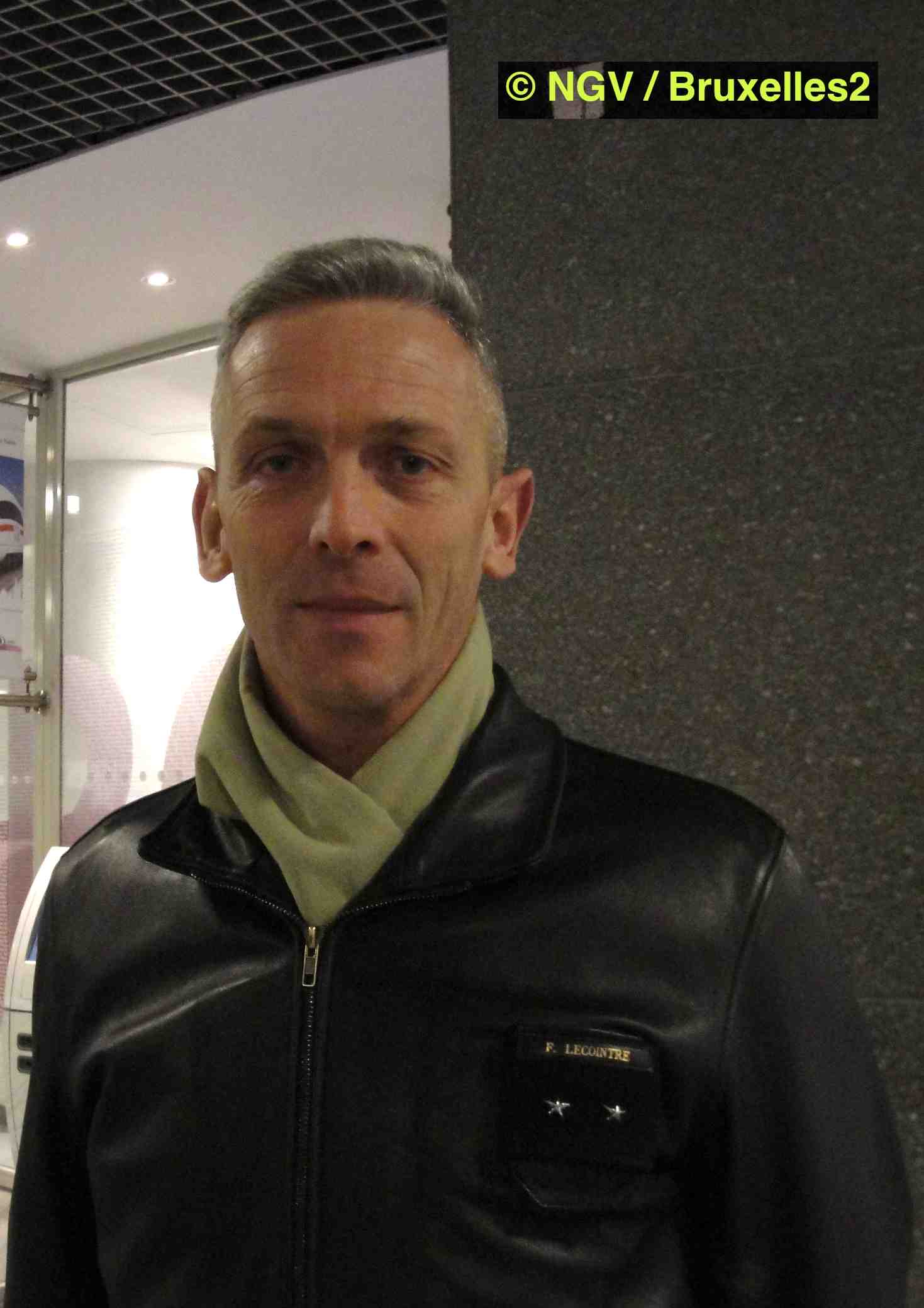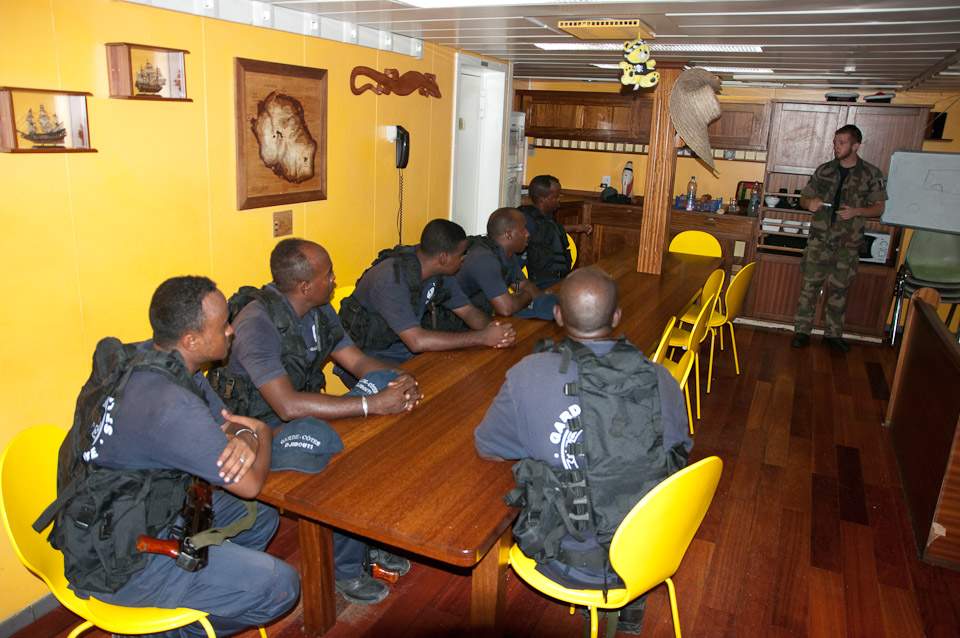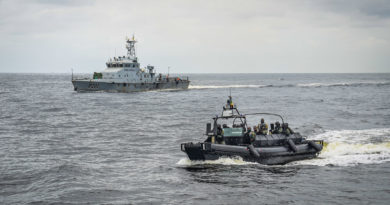(Gen. Lecointre – EUTM Mali) objective: to restore the software of the Malian army
 (BRUSSELS2, exclusive) Back from Bamako, General Lecointre - who will command the training mission of the Malian army (EUTM Mali) - came before the 27 ambassadors of the COPS - the Political and Security Committee - to present a state of the situation and, above all, to answer the questions of the ambassadors. Started from 16:15 p.m., the Mali point raised several questions from the ambassadors, particularly on the objectives of the mission but also on (possible) abuses or respect for human rights, as confided by participants in the meeting. Unexpectedly, General Lecointre agreed to answer a few questions from B2...
(BRUSSELS2, exclusive) Back from Bamako, General Lecointre - who will command the training mission of the Malian army (EUTM Mali) - came before the 27 ambassadors of the COPS - the Political and Security Committee - to present a state of the situation and, above all, to answer the questions of the ambassadors. Started from 16:15 p.m., the Mali point raised several questions from the ambassadors, particularly on the objectives of the mission but also on (possible) abuses or respect for human rights, as confided by participants in the meeting. Unexpectedly, General Lecointre agreed to answer a few questions from B2...
It has sometimes been said that this mission came too late. Is this your opinion?
On the contrary. It is even more necessary than yesterday. This is what I explained to the ambassadors. It does not change the relevance of the need. The war is not over. There is a real long-term need. The European mission has an objective, in reality, at least as much political as military. It is to rebuild the Malian army to restore the territorial integrity of the Malian state, and to build an army that respects democracy and the rule of law... We must therefore consider things over the long term, at least the average time, not the short term.
Does that mean we have time?
No. There is a real desire to speed up the establishment of the mission on the European side as well as on the Malian side. Me Ashton's request for acceleration (the High Representative) was well understood. The Member States are convinced that we must support France and that we must commit to this mission. (In Mali), the chain of command and the political authorities have clearly measured that they were close to disaster. They are more willing than ever to accept consultancy assignments. One could guess that the "king was naked". Now the Malian authorities themselves are ready to admit that advice and a lot of help are needed.
The fundamentals of the mission remain similar to those originally defined?
The format originally defined is the correct one. The mission will therefore unfold around two pillars. On the one hand, advice and expertise for the chain of command of the Malian army; on the other hand, to ensure the formation and training of 4 combined arms battalions out of the eight that make up the Malian army.
What does the expertise part cover?
The objective is to completely restructure and restore their operational chain of command. To have a method of recruitment, training, monitoring of human resources that is well done, to have a logistics chain that holds water. These are basics. But it is essential. We will not tackle all the problems of an army or a General Staff, infrastructure, for example. It is, in fact, the software of the Malian army that we want to rebuild. An important part of this "structuring" is the submission of the military to the political. This strict submission of the military to the political is the subject of a particular point of attention in the concept of operation and in the action that we are going to carry out.
When will this mission start?
I decided to modify the tempo of the operation. Instead of triggering the "advice and expertise" part and the "training" part at the same time, I intend to advance the expertise part so that it can start very quickly in the field, the day after the decision to launch, that hopefully February 12.
Will it be possible?
We push the lights to be fully operational, from mid-February. We will thus have a team of about twenty officers on site very quickly. It's quite simple in a way: there is no implementation constraint, little infrastructure. And this has a big advantage by putting this precursor element to have an inventory, an audit of the Malian army, before the launch of the training.
Several ambassadors were interrogative in the face of possible human rights violations committed by Malian forces or others? What did you answer them, how can we find a solution other than by words?
This is indeed a crucial question. I was confronted with painful and traumatic scenes whether in Rwanda or in Bosnia. And I am particularly sensitive about this. From personal combat experience, I also know how much combat leads to unleashing the own violence that is in each of us, even if we think we are civilized. The only way to prevent people from committing abuses is of course to provide them with theoretical and formal training on the subject — We will do this and we will remind people of the law and international law — but that is also and above all to have a leader in whom the soldiers have confidence and who commands his men. This is the best response to everyone's concerns about abuses.
What guarantee can we give that there will be no exactions?
I can't guarantee anything. What I am certain of is that by restoring this link of authority and command, we will fight better against abuses. Without that it is very difficult... The day when you are a soldier in reconquest and you come across a guy who you know has raped your wife and killed your children, it is natural that you want revenge . It will be difficult to repress your instinct for violence and savagery. If you're not alone and with a leader who watches you, who judges you, who you trust, chances are it won't happen. When you are a soldier who is part of a community and a collective, you take on more than just your responsibility, it makes you more responsible.
Last question, what is the fate of Sanogo's putschist officers in this new Malian army in the making?
I don't know. I deal with the Malian authorities: with the Minister of Defence, General Camara, the Chief of Staff, General Dembele, the Deputy Chief of Operations, etc. I don't know anyone else. It's up to them to decide.
The details of the training, how will they take place, the "protection force", the rest of the interview on the B2 club



Hello,
We must suggest to General Lecointre not to forget to integrate into the training of Malian units, prevotal units (gendarmerie) with military judicial competence.
It will not be possible to recreate this army without the permanent long-term presence of French or European advisers within the units and without the training of senior officers within the units of the French army. The French army must be able to hire Africans – as foreigners – in its ranks to return them later to the armies of origin.